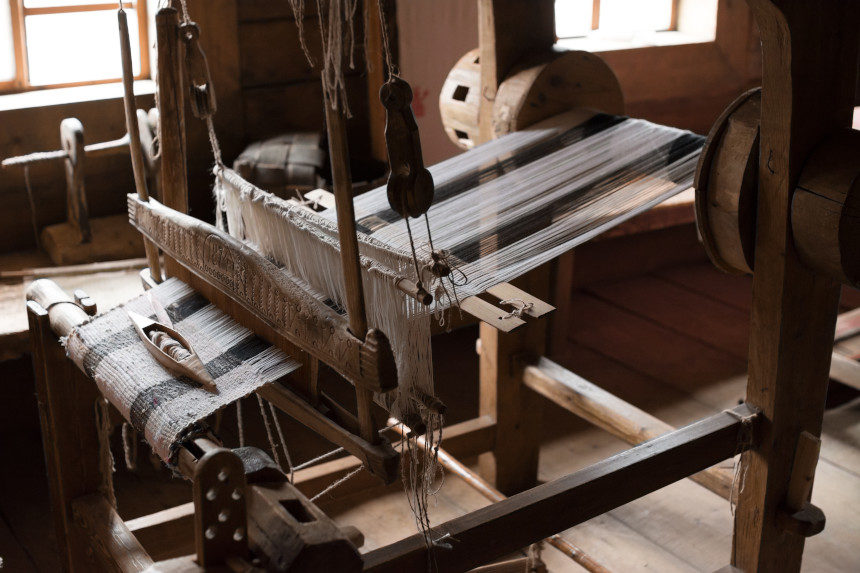Managing editor and logophile Andy Hollandbeck reveals the sometimes surprising roots of common English words and phrases. Remember: Etymology tells us where a word comes from, but not what it means today.
If you’re from a relatively close-knit family, it’s likely you have some memento from an ancestor stowed away in a box, a chest, or a bank vault. We cherish these heirlooms as solid pieces of family history that survive through generations.
But have you ever wondered about that word heirloom?
It looks like a straightforward compound word — heir + loom — and, as it turns out, it is. The heir- part makes sense, because heirlooms are (generally) passed on to heirs, but what about the -loom? Were the original heirlooms actual looms passed down through generations?
Yes, they were, but it’s not what you think.
The heir- part of heirloom was, like most English words that begin with a silent H, adopted from French — specifically from what’s called Anglo-French, the dialect of Old French used in England during the Middle Ages, when French was the primary language of diplomacy. And because it comes from French, it can be traced back to Latin: Its root is heres “heir/heiress,” which is also the root of heredity.
The -loom in heirloom (or ayre lome in Middle English) comes from a shortening of Old English geloma, which was a generic word for a tool or utensil of any kind. Loom didn’t shift specifically to the cloth-weaving apparatus until around the early 15th century, about the same time that heirloom was solidifying its place in the language.
This loom, by the way, is not at all etymologically related to the verb to loom, whose origin is uncertain. In early uses, it described the up-and-down movement of ships on water, and it may have evolved from the same root as the word lame.
An heirloom, then, is historically any tool or utensil that is passed on to an heir. “Any tool or utensil” is a pretty broad category, so it’s easy to see how the word came to mean “any family keepsake.”
Featured image: Violetta Derkach / Shutterstock
Become a Saturday Evening Post member and enjoy unlimited access. Subscribe now




Comments
I don’t hear this word used very often, Andy; at least not much anymore. Interesting story you’ve done here on the word. To me it seems like some kind of family collectible passed down from a few generations or more that has value; either sentimental or monetary, or both.